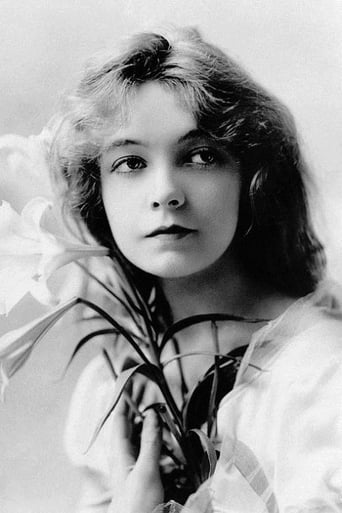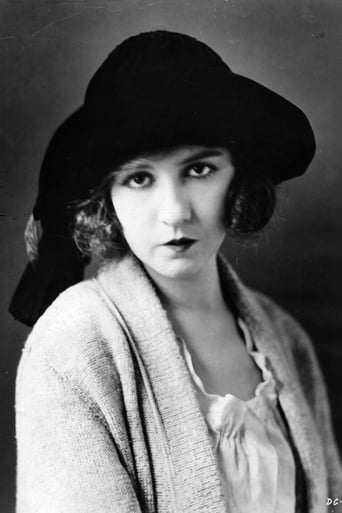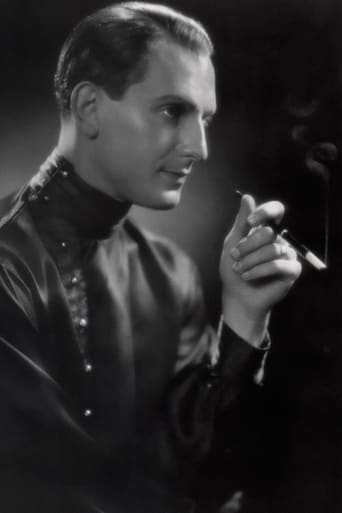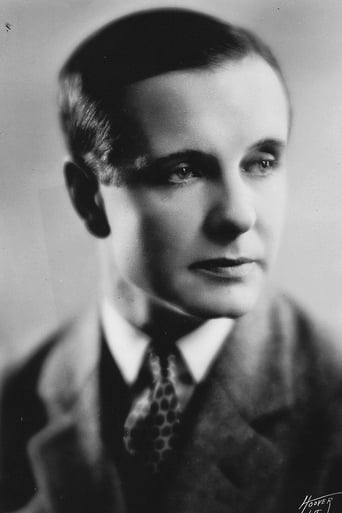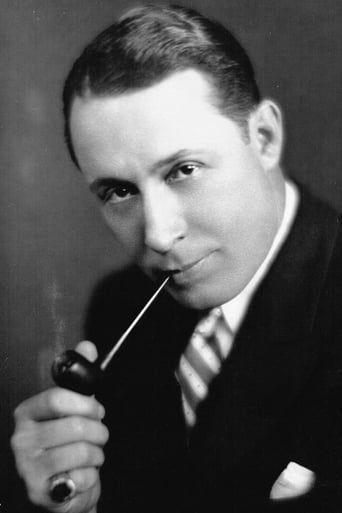Claysaba
Excellent, Without a doubt!!
Gurlyndrobb
While it doesn't offer any answers, it both thrills and makes you think.
filippaberry84
I think this is a new genre that they're all sort of working their way through it and haven't got all the kinks worked out yet but it's a genre that works for me.
Nicole
I enjoyed watching this film and would recommend other to give it a try , (as I am) but this movie, although enjoyable to watch due to the better than average acting fails to add anything new to its storyline that is all too familiar to these types of movies.
Claudio Carvalho
In the Eighteenth Century in France, a few years before the French Revolution, the Countess de Linieres (Katherine Emmet) asks her minion to deliver her baby daughter Louise to an orphanage to protect her. However he leaves the baby on the stairs of a church. A peasant finds Louise and brings her home to his wife and they find a necklace with her name and money in the basket. They raise Louise with their daughter Henriette as sisters, but years later there is a plague and they die and Louise becomes blind. Louise Girard (Dorothy Gish) is totally dependent on Henriette Girard (Lillian Gish) and they travel to Paris expecting to find the cure of Louise's blindness. The rogue Marquis de Praille (Morgan Wallace) sees Henriette and becomes fascinated with her virginal beauty. He asks his men to abduct Henriette and brings her to his party. Louise is left alone in Paris and the scoundrel Mother Frochard (Lucille La Verne) forces Louise to beg on the streets for her. Meanwhile the noble aristocrat Chevalier de Vaudrey (Joseph Schildkraut) saves Henriette and they fall in love with each other. But Henriette explains that she had promised Louise that she would not marry until Louise could look upon her husband to approve him. Meanwhile Danton (Monte Blue), who is saved by Henriette, and Robespierre (Sidney Herbert) are plotting the French Revolution that explodes on the streets keeping the sisters apart."Orphans of the Storm" is another magnificent epic by D. W. Griffith and his last success. The film impresses in many aspects, such as the screenplay, the set locations and fantastic camera work, with impressive angles considering the size of the cameras and the technology in the early Twentieth Century. The plot is a combination of heavy drama, romance and action and sensitive viewers will certainly need a handkerchief to see the touching scenes of the sisters set apart. The suspenseful conclusion, with Danton and his men trying to deliver the pardon of Henriette and Chevalier de Vaudrey, is suspenseful and thrilling. The lovely Lilian Gish is another attraction with a wonderful performance. Last but not the least, "Orphans of the Storm" is a mandatory film for any cinema lover. My vote is nine.Title (Brazil): "Órfãs da Tempestade" ("Orphans of the Storm")
gavin6942
Two orphaned sisters (Lillian and Dorothy Gish) are caught up in the turmoil of the French Revolution, encountering misery and love along the way.The last Griffith film to feature Lillian and Dorothy Gish, it is often considered Griffith's last major commercial success, after box-office hits such as The Birth of a Nation, Intolerance, and Broken Blossoms. Like his earlier films, Griffith used historical events to comment on contemporary events, in this case the French Revolution to warn about the rise of Bolshevism. The film is about class conflict and a plea for inter-class understanding and against destructive hatred.For me, the best Griffith will always be "Broken Blossoms", but his whole method is interesting. Making such epic films to make a political point... it's admirable, and even more admirable considered how much time must have went into making such long films at that point in time. I can only imagine how much film he had to burn through to get what he ended up with.
bkoganbing
If pushed to the wall I think that most film historians will agree that the first great director/player team in American film is that of D.W. Griffith and Lillian Gish. The last collaboration of that team is Orphans Of The Storm in which sister Dorothy had a prominent role as another orphan.The source for this film is a story of French origin, the kind of material it would be impossible to do today, it would date so. Lillian and Dorothy are a pair of adopted sisters, Dorothy is in fact of noble birth, but as an infant she was abandoned because her mother had married a commoner and such was not done in Bourbon France. The story of Orphans Of The Storm is how Lillian and Dorothy raised together, get separated through time and circumstance and in between when they reunite, France undergoes a revolution. Although Griffith's source of the story was French, he relied heavily on Thomas Carlyle and Charles Dickens. Carlyle's history and A Tale Of Two Cities by Dickens became the picture that the average person in the English speaking world had of those times in France it would have been what the movie-going public expected. As history Orphans Of The Storm falls way short.As entertainment to this day the Gish sisters will tear your heart out with their troubles and turmoil. Playing the part of an aristocrat with a conscience like Charles Darnay in A Tale Of Two Cities is a young Joseph Schildkraut. It was clear he would have a long career ahead of him and his speaking voice enhanced his employment opportunities when sound came in.Lillian Gish when she wrote her memoirs in the 1970s and who knew she still had a substantial career ahead of her, entitled the book, The Movies, Mr. Griffith, and Me. Reading that book and hearing interviews with her while she was alive, I don't think I ever heard any player convey more love for her art and her mentor than Ms. Gish did. From The Birth Of A Nation until The Whales Of August no one ever had a longer or more fruitful career in film than Lillian Gish.I don't want to shortchange Dorothy either. Her part called for her to lose her sight and you will rarely see innocence portrayed quite as touchingly as she does in Orphans Of The Storm. An unseen hand of Providence protects those like Dorothy Gish. Doesn't hurt to have a caring sister.If you're a silent movie fan, this film is an absolute must as well as a fan of the Gish sisters.
Enrique Sanchez
A masterpiece.I cannot help being a musician and silent film lover. Do not fault me for my views. :) The music that populates a movie is important - and it is important to me. When I first saw this movie, it was an accident of 1970s channel surfing - remember when we all had less than 10 choices.I walked in when the titles were going up and the piano sounds of William Perry played. And they played into my heart - and have never left there. Repeated viewings with this piano score has indelibly bored itself into my subconscious.Talk about the original score has intrigued me - and the use of the then contemporary music of Louis Moreau Gottschalk did also interest me - somewhat. Other versions I read about talk about the "nice" string score.I just downloaded the AMAZON version of this version and have come away woefully and irreversibly disappointed with the result.What did I hear? Instead of the Perry piano score, I heard some fin-de-siecle tinklings written by Gottschalk. It did not satisfy - it did not bring me into the story - it did not make me want to see this movie in its entirety. Not like another score that stole my heart.If any of you every have a chance to encounter the Willam Perry piano score for this movie - stop, look and listen. His music like NO OTHER evokes every emotion you could possibly imagine - - every nuance -- like no other score will ever do.The score has romantic melodies that one can recognize and return again and again during crucial moments - it has stirring, dramatic sounds - it has the Marseillaise (even though it is historically precedent of this time in the French Revolution) -- it has up and downs, crescendos and diminuendos, it has tender, heartfelt moments of beauty that I will remember for the rest of my life.Years ago, I was able to correspond with Mr. Perry. I had wanted the piano score - to buy. He said to me that none existed. I was astounded because what I thought was a carefully worked out score - was his own - on the SPOT compilation. He said that he had music of the several themes on his piano - and was always watching the action. He "cued" the movie and then played what he had planned - completely on the fly! I told him that the result to me was astounding and so memorable.This is what genius is. Unexplainable.Though I can recommend this movie without any reservation - because it is my favorite silent film - I cannot recommend any other musical score - than the piano score by William Perry.

